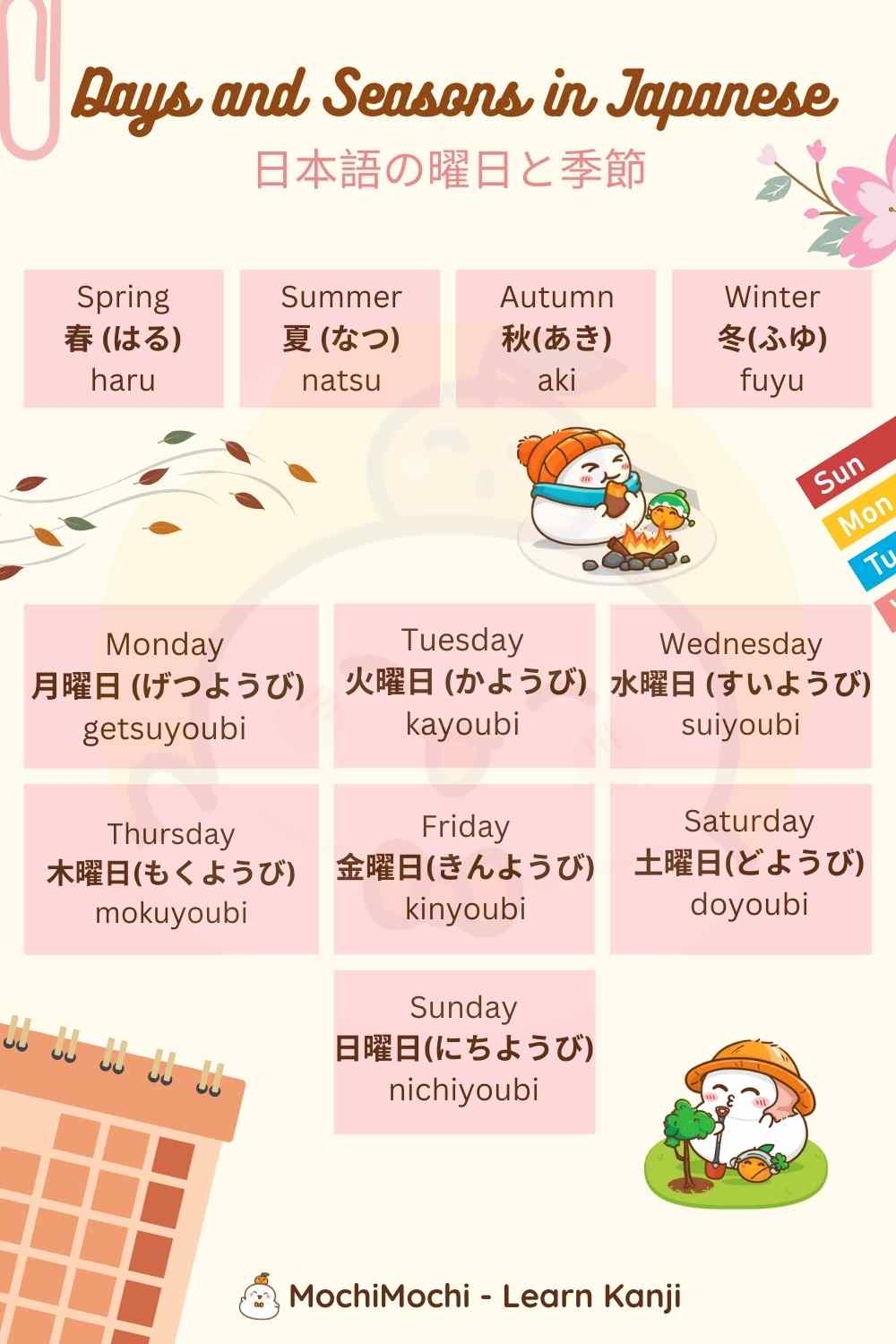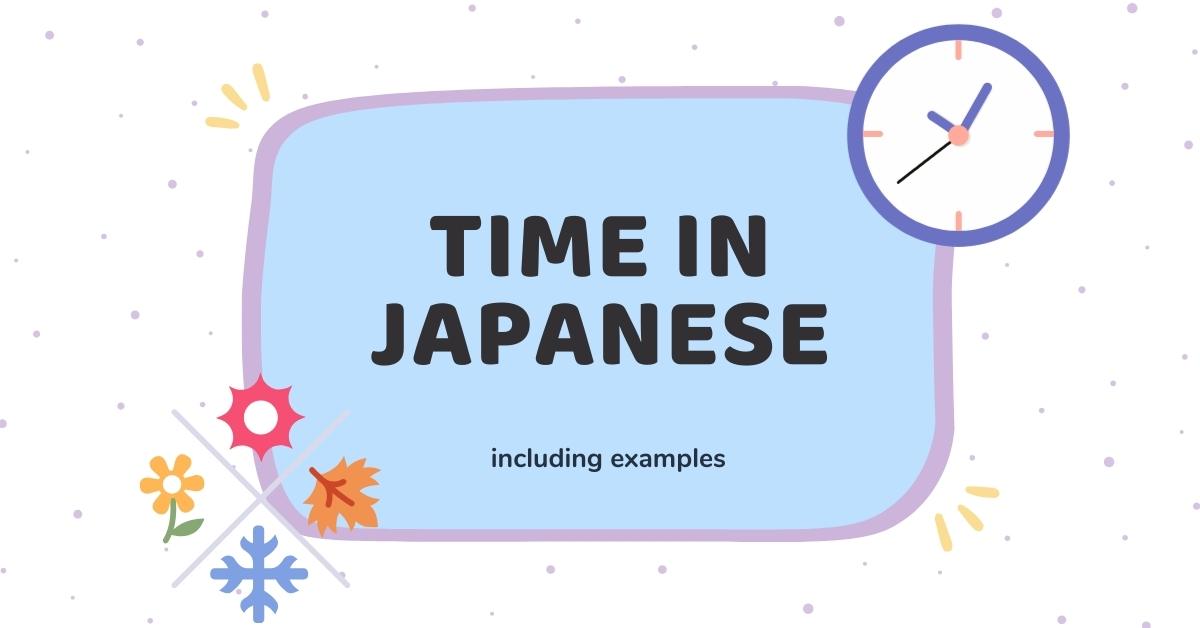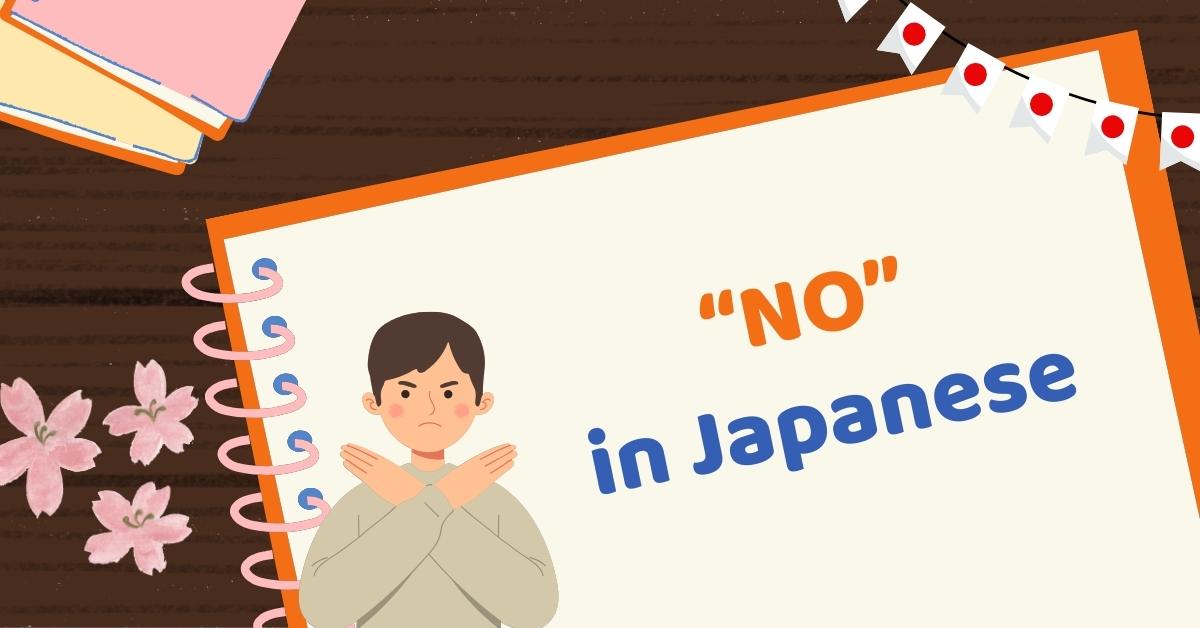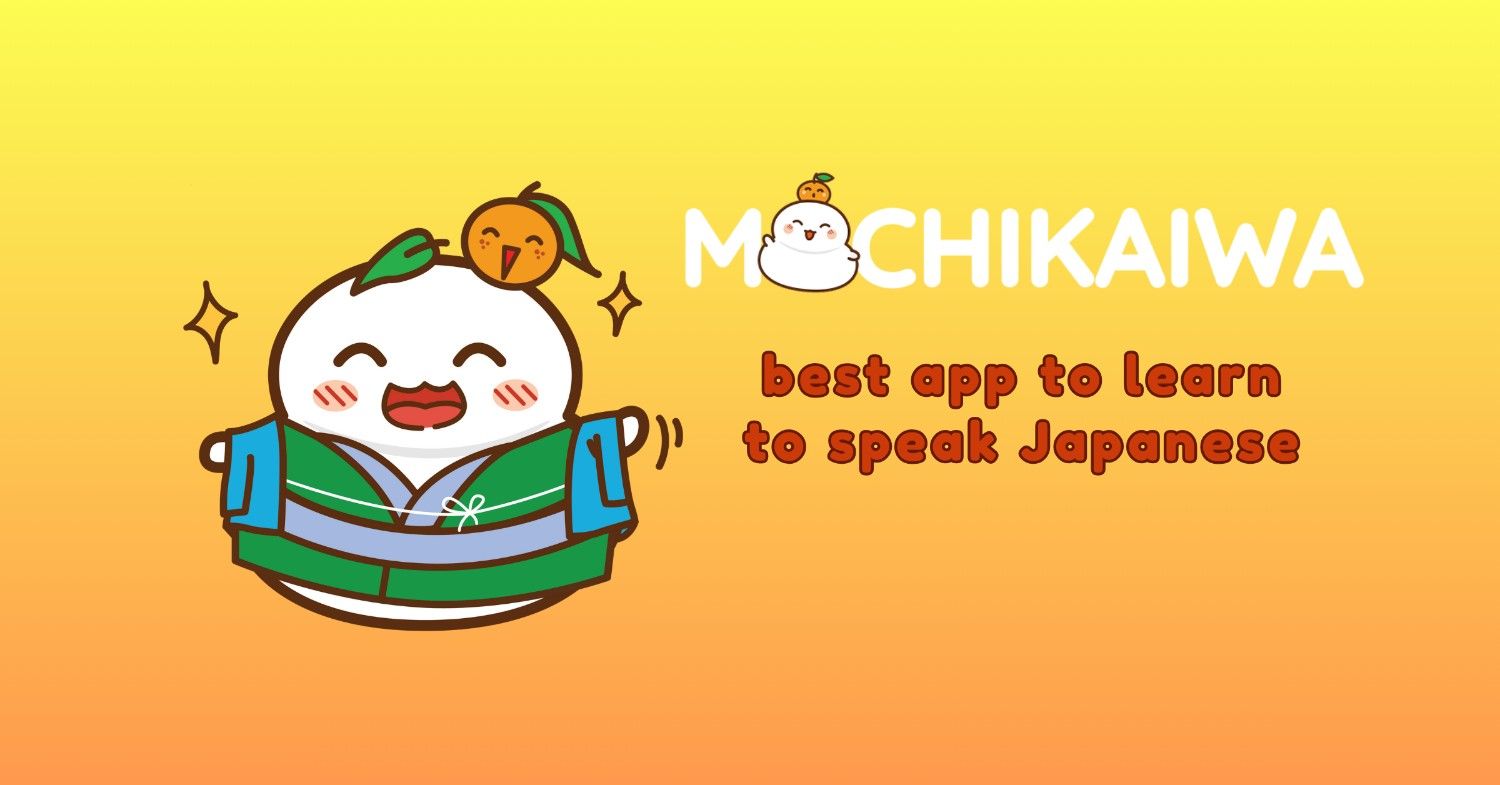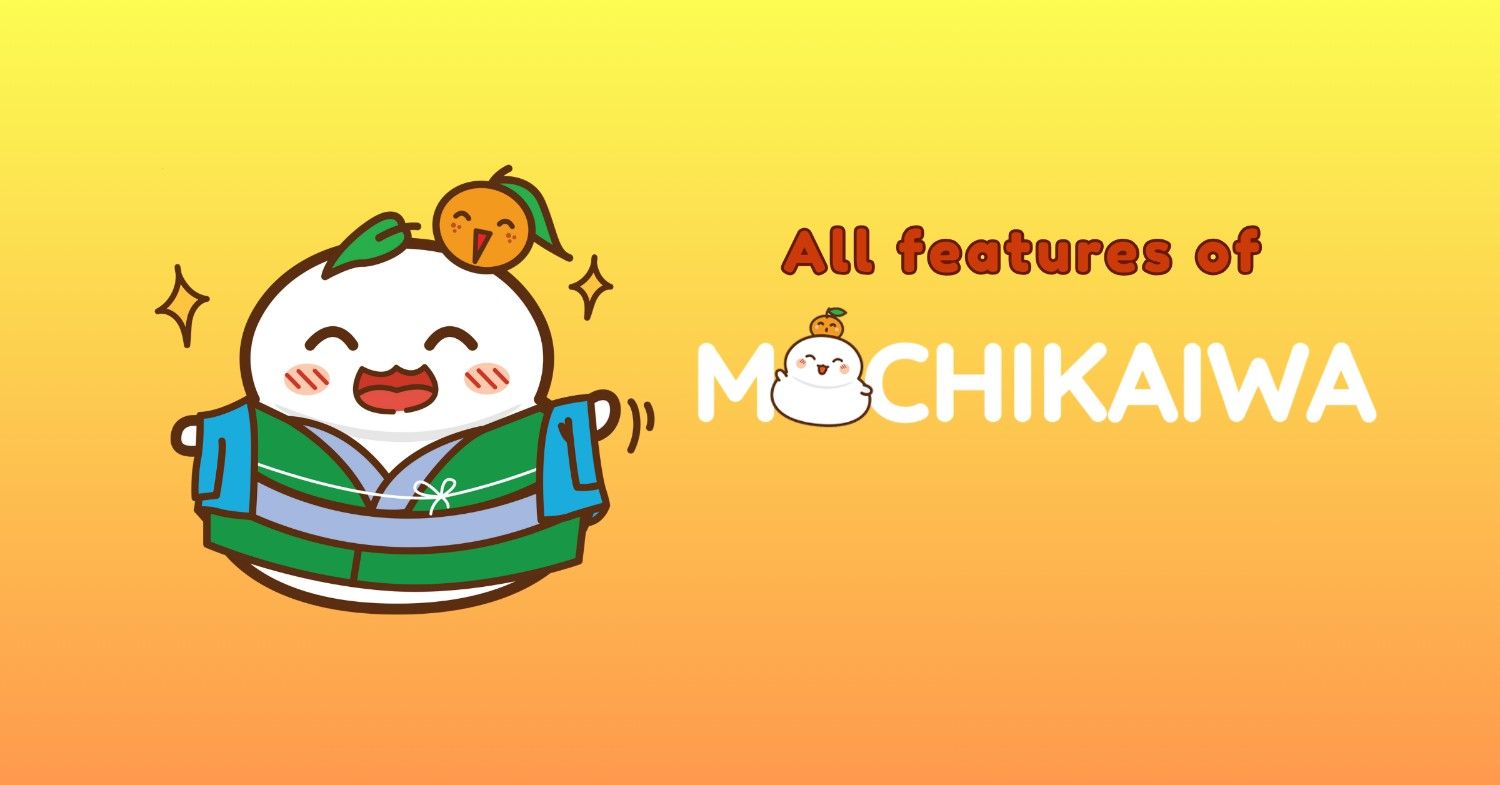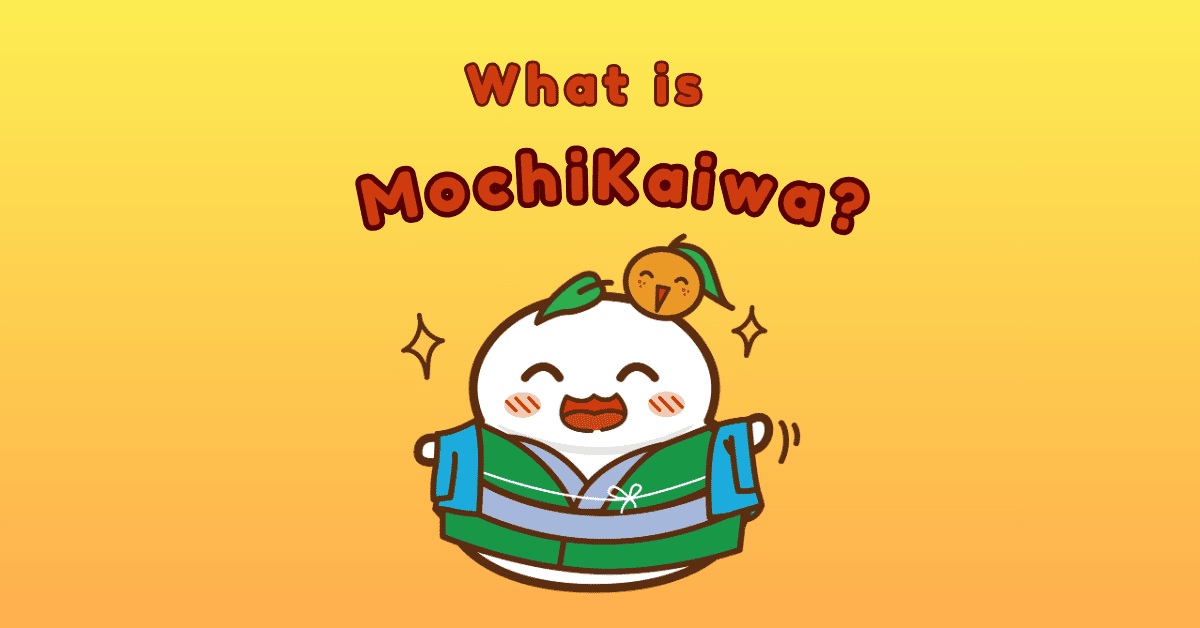Learning how to tell time in Japanese is a fundamental step for anyone studying the language. Understanding these terms not only helps with daily communication but also provides insights into Japanese culture and its connections to nature and astronomy. In this blog post, we’ll explore the names of 7 days in Japanese, their meanings, and how to use them in everyday conversations. Whether you’re a beginner or looking to deepen your knowledge, this guide will enhance your grasp of Japanese language and culture.

7 days in Japanese
- Monday – 月曜日 (げつようび, getsuyoubi)
- Tuesday – 火曜日 (かようび, kayoubi)
- Wednesday – 水曜日 (すいようび, suiyoubi)
- Thursday – 木曜日 (もくようび, mokuyoubi)
- Friday – 金曜日 (きんようび, kinyoubi)
- Saturday – 土曜日 (どようび, doyoubi)
- Sunday – 日曜日 (にちようび, nichiyoubi)
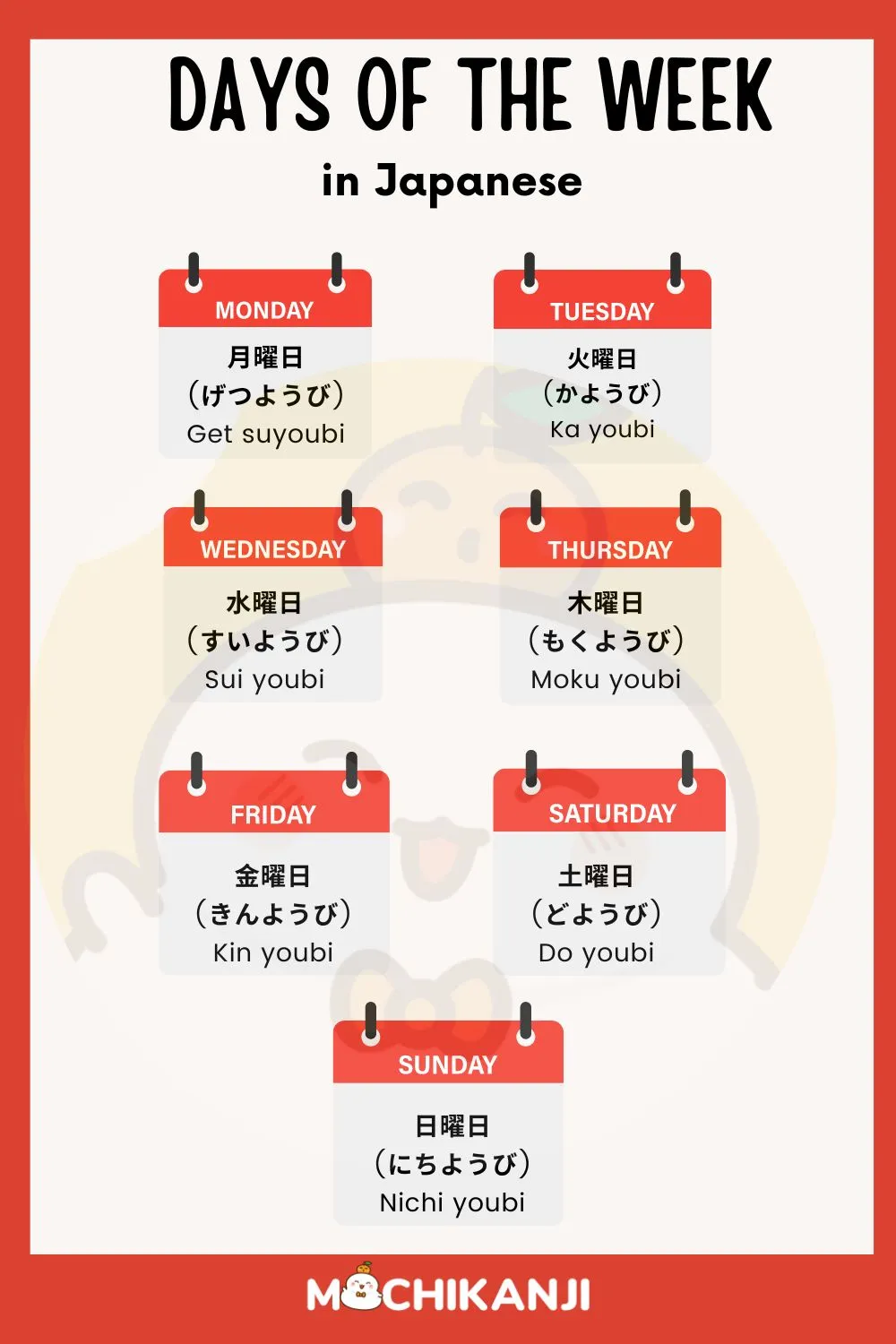
| Meaning | Kanji | Hiragana | Romaji |
|---|---|---|---|
| Monday | 月曜日 | げつようび | getsuyoubi |
| Tuesday | 火曜日 | かようび | kayoubi |
| Wednesday | 水曜日 | すいようび | suiyoubi |
| Thursday | 木曜日 | もくようび | mokuyoubi |
| Friday | 金曜日 | きんようび | kinyoubi |
| Saturday | 土曜日 | どようび | doyoubi |
| Sunday | 日曜日 | にちようび | nichiyoubi |
Meaning of each day
Each day of the week in Japanese is associated with a natural element or celestial body, reflected in the Kanji characters.
- Sunday: 日曜日 (にちようび, Nichiyōbi) The character 日 means “sun.” Thus, 日曜日 translates to “sun day,” which is also linked to Amaterasu, the sun goddess in Shinto.
- Monday: 月曜日 (げつようび, Getsuyōbi) 月 stands for “moon.” Like in many cultures, Monday in Japan is associated with the moon.
- Tuesday: 火曜日 (かようび, Kayōbi) 火 translates to “fire,” referring to Mars, known as the “Fire Star” in ancient Japanese astronomy due to its red hue.
- Wednesday: 水曜日 (すいようび, Suiyōbi) 水 means “water,” associated with Mercury, the “Water Star.”
- Thursday: 木曜日 (もくようび, Mokuyōbi) 木 signifies “wood” or “tree,” linked to Jupiter, the “Wood Star,” symbolizing growth.
- Friday: 金曜日 (きんようび, Kinyōbi) 金 means “gold” or “metal,” connected to Venus, the “Metal Star.”
- Saturday: 土曜日 (どようび, Doyōbi) 土 stands for “earth,” related to Saturn, the “Earth Star.”
Related Phrases
Asking About the Day
- What day is it today?: 今日は何曜日ですか? (きょうはなんようびですか, Kyou wa nan youbi desu ka?)
- Today is Monday: 今日は月曜日です。 (きょうはげつようびです, Kyou wa getsuyoubi desu.)
Talking About Yesterday and Tomorrow
- What day was it yesterday?: 昨日は何曜日でしたか (きのうはなんようびでしたか, Kinou wa nan youbi deshita ka?)
- Yesterday was Sunday: 昨日は日曜日でした。 (きのうはにちようびでした, Kinou wa nichiyoubi deshita.)
- What day is tomorrow?: 明日は何曜日ですか (あしたはなんようびですか, Ashita wa nan youbi desu ka?)
- Tomorrow is Tuesday: 明日は火曜日です。 (あしたはかようびです, Ashita wa kayoubi desu.)
Discussing the Week
- Every Monday: 毎週月曜日 (まいしゅうげつようび, maishuu getsuyoubi)
- Next Wednesday: 来週の水曜日 (らいしゅうのすいようび, raishuu no suiyoubi)
- Last Friday: 先週の金曜日 (せんしゅうのきんようび, senshuu no kinyoubi)
Tips for Learning
- Flashcards: Create flashcards for vocabulary to practice regularly.
- Language Apps: Use apps like MochiKanji to reinforce your learning with interactive exercises.
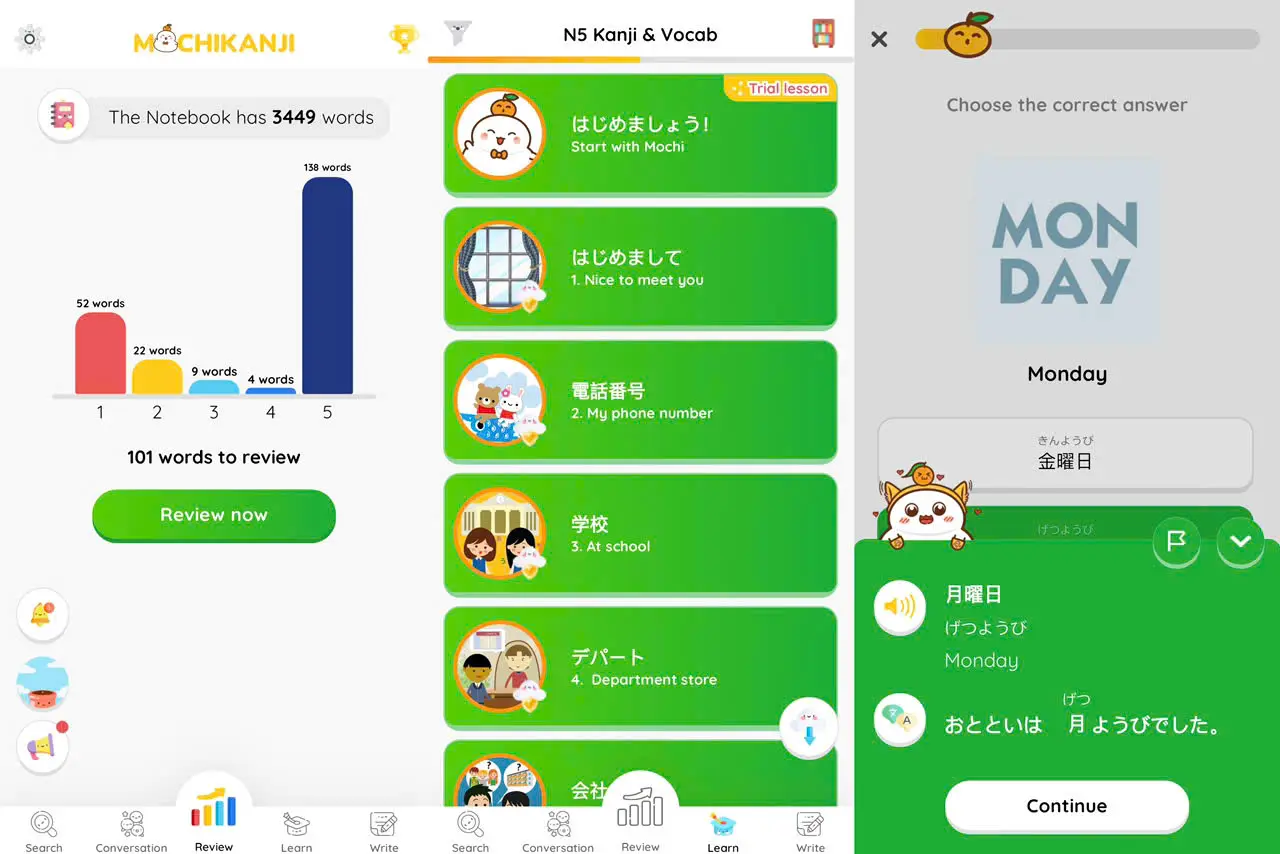
MochiKanji takes full advantage of this technique, analyzing your learning history and informing you with automatic notifications so you can relearn Kanji and vocabulary at the optimal time. So, if you follow MochiKanji’s learning path every day at the time it prompts you, you can memorize 1,000 words and Kanji in a month.
- Daily Practice: Integrate these phrases into your daily routine by saying them in Japanese.
- Engage with Native Content: Watch Japanese TV shows, listen to Japanese music, and follow Japanese media to hear these terms in context.
- Speak with Native Speakers: Practice with native speakers or language exchange partners to improve your pronunciation and fluency.
By consistently practicing these elements and immersing yourself in the language, you’ll become proficient in telling days and time in Japanese.
FAQs
What are the seven days a week in Japanese?
- 月曜日 (げつようび, getsuyoubi) – Monday
- 火曜日 (かようび, kayoubi) – Tuesday
- 水曜日 (すいようび, suiyoubi) – Wednesday
- 木曜日 (もくようび, mokuyoubi) – Thursday
- 金曜日 (きんようび, kinyoubi) – Friday
- 土曜日 (どようび, doyoubi) – Saturday
- 日曜日 (にちようび, nichiyoubi) – Sunday
How do you say the days of week in Japan?
In Japan, the week days are pronounced as follows:
- Monday: 月曜日 (getsuyoubi)
- Tuesday: 火曜日 (kayoubi)
- Wednesday: 水曜日 (suiyoubi)
- Thursday: 木曜日 (mokuyoubi)
- Friday: 金曜日 (kinyoubi)
- Saturday: 土曜日 (doyoubi)
- Sunday: 日曜日 (nichiyoubi)
How to remember days of week in Japanese?
To remember the week days in Japanese, you can break it down by recognizing the kanji symbols:
- 月 (moon) for Monday
- 火 (fire) for Tuesday
- 水 (water) for Wednesday
- 木 (wood) for Thursday
- 金 (gold) for Friday
- 土 (earth) for Saturday
- 日 (sun) for Sunday Using this elemental association, you can create visual or mnemonic connections to make memorization easier.
What are the 12 months in Japanese?
- The 12 months in Japanese are:
- 1月 (いちがつ, ichigatsu) – January
- 2月 (にがつ, nigatsu) – February
- 3月 (さんがつ, sangatsu) – March
- 4月 (しがつ, shigatsu) – April
- 5月 (ごがつ, gogatsu) – May
- 6月 (ろくがつ, rokugatsu) – June
- 7月 (しちがつ, shichigatsu) – July
- 8月 (はちがつ, hachigatsu) – August
- 9月 (くがつ, kugatsu) – September
- 10月 (じゅうがつ, juugatsu) – October
- 11月 (じゅういちがつ, juuichigatsu) – November
- 12月 (じゅうにがつ, juunigatsu) – December
Each month is simply the number followed by the word 月 (がつ, gatsu), meaning “month.”

